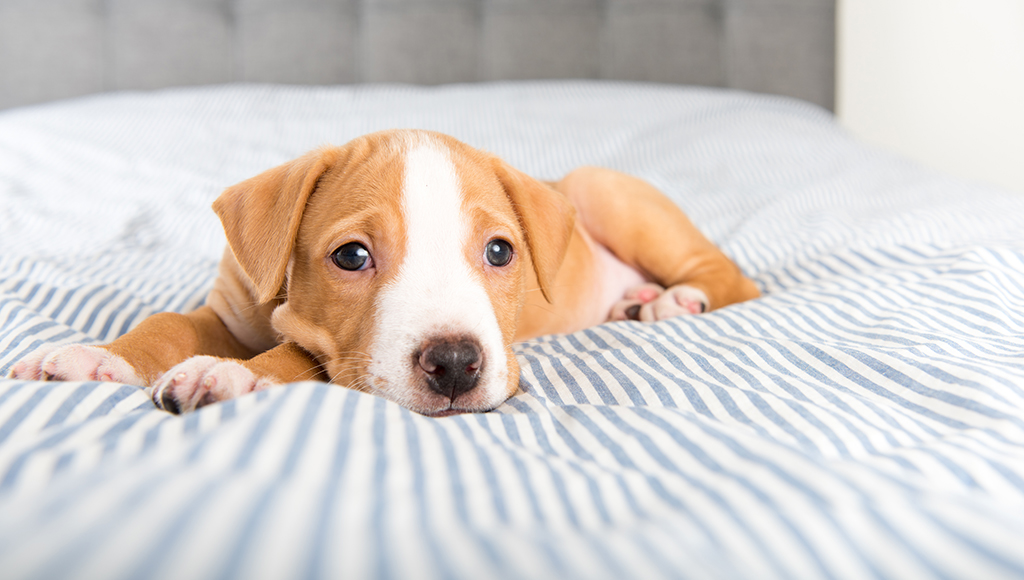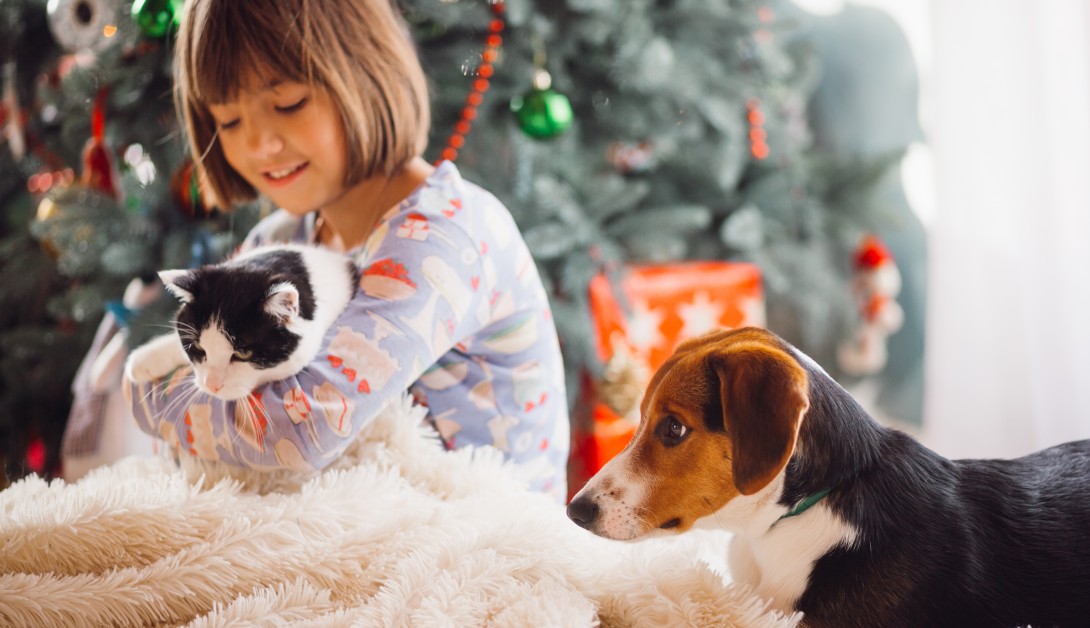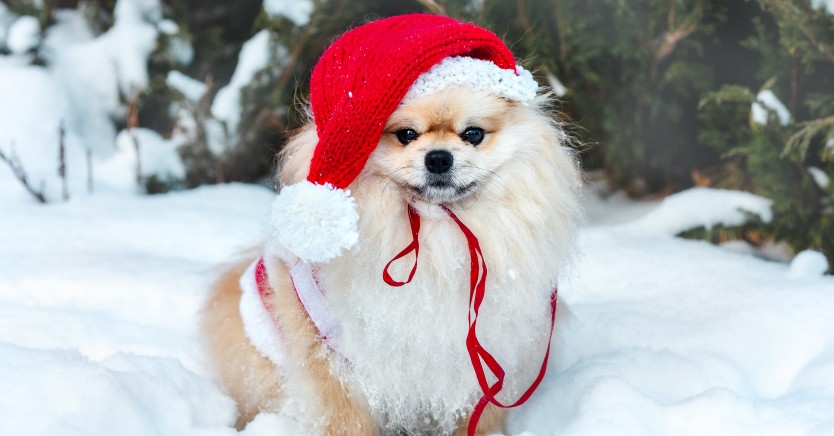Canine Parvovirus: Care and Recovery
It is important to follow your Veterinarian's full schedule of care.

A puppy recovering from canine parvovirus will require special care to help facilitate a complete and successful recovery. Upon returning home, your puppy will be finishing up a course of antibiotics and may also be on some medication for nausea or diarrhea. It is very important that you give your puppy the medication prescribed for the full amount of time it has been prescribed; even if he seems fine.
Your puppy is recovering from some extensive damage to his/her intestinal tract. It is typical for stools to be a little loose at first or for no stool to be produced for a few days as the intestinal tract recovers. The stool should gradually firm up over the first 3-5 days at home and your puppy should be active, and exhibiting his normal demeanor and behavior. If the diarrhea persists, if vomiting occurs or if your puppy seems depressed, please contact your veterinarian at once for instructions on any additional treament that may be necessary
Diet
Your puppy's appetite may seem ravenous after going so long without food. However, do not allow the puppy to gorge or overeat, as this can result in more vomiting or diarrhea. Feed smaller meals separated by at least an hour or two. Gradually increasing your puppy's food consumption will allow his system to better handle the increased food levels without becoming overwhelmed. While your puppy is recovering it is important to make sure you do not feed table scraps. Stick to the diet recommended by your veterinarian. A prescription diet may have been sent home or a home cooked diet may have been recommended (such as boiled chicken and white rice, or fat free cottage cheese and pasta). It is important for your puppy’s food to be easily digestible, so stick to the protocol your veterinarian has recommended.
Exercise
Your puppy should be considered contagious to other puppies for at least a month, so it is important to “play it safe” by restricting trips to the park, obedience school or other neighborhood areas where other puppies may be present. If your puppy is less than 16 weeks of age, he/she should not be allowed in public areas until the vaccination series is fully completed.
Other Pets
Cats and humans are not susceptible to canine parvovirus infection. Adult dogs that have been vaccinated are also not susceptible; however. puppies are at risk. If your sick puppy was indoors only, wait at least one month before any new puppies come to your home. If your sick puppy was outdoors, remember that it can take up to 7 months before the virus is eliminated from soil. (Freezing will preserve the virus so any time during which the ground is frozen, does not count in this 7 month period.)
Bathing
Your puppy may be bathed any time as long as you do not allow him/her to get cold or chilled after the bath. Bathing will reduce the amount of virus left on the puppy’s fur and will help reduce contagion.
Resuming Vaccines
Follow your veterinarian’s recommendations on resuming vaccines. Your puppy cannot be re-infected with this virus for at least 3 years (and probably is protected for life simply by virtue of this infection), but there are other viruses that your puppy should be protected against. Your veterinarian will give you a vaccination schedule to adhere to for the future to help protect your dog against future infections.
There should be no permanent ramifications due to this infection. The recovered puppy should lead a normal life once the recovery period is completed (approximately 1-2 weeks).
Ready to start saving money on pet wellness care?
Then take a look at Mint Wellness, the pet wellness plan that provides fast reimbursement on routine pet care. Save on vaccinations, wellness exams, preventatives, dental, and more!
Learn More


